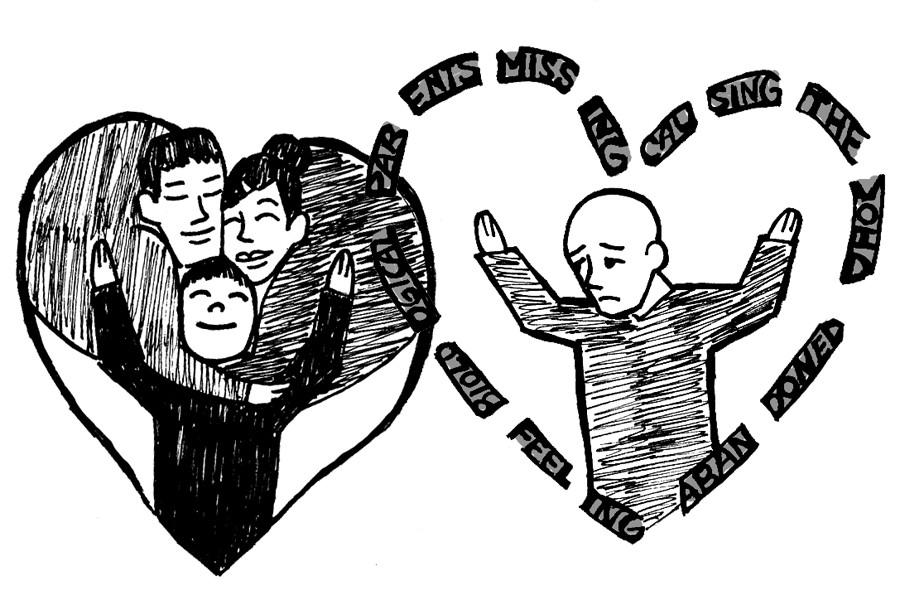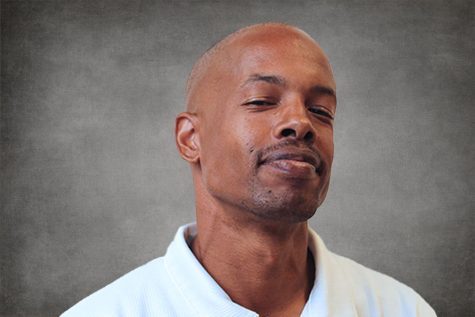Overcoming stigmas of adoption
Absence of connection with biological roots fosters feeling of emptiness, hope, self worth
Mar 18, 2015
As an adopted child born after legalized abortion every day I wake up is like a gift because from the beginning of my life I know I was not supposed to be here.
That feeling never goes away. It instead exists in the back of my mind along with a host of other insecurities that are born from having no connection with my biological roots.
For some there is an emptiness that comes with being adopted. It starts with realizing at an early age that you are truly alone.
I was birthed by a 15-year-old high school honor student from an average household. The story I was told is that she did not want to jeopardize her academic future carrying the burden of a child.
Adopted a week later, I luckily grew up with two of the best parents anyone could ask for.
According to information provided by the U.S. census bureau, 2.1 million children are adopted each year into a wide range of circumstances.
Ultimately, her choosing adoption over abortion was definitely better for my future but after witnessing the birth of my first son, it opened the door to many more questions.
Was it the moment my mother’s eyes met mine that it became clear that I was not worth bonding with?
Was there no father to look at my face and see his grandfather’s chin or his mother’s nose?
How is it that no rational thought was had that culminated with giving your creation, your responsibility, a chance?
Even in less than ideal circumstances.
I still have admiration for the homeless or disabled people struggling to keep their children with them.
Most parents seem to share the idea that going through a tough situation with a child is better than placing your baby in the hands of absolute uncertainty.
Inevitably the mind fills in the answers and rather than dwell in an emotional fortress of solitude, the focus shifts to more rational ideas.
Thoughts of an unknown medical history or potential genetic abnormalities take precedence over emotional needs.
There is no way to know what dormant gene skipped a generation and is waiting to prey on my unsuspecting children.
These sophisticated questions do not replace the earlier ones — they sustain them.
Real emotional connections are harder for me to make and when those relationships falter, it seems easier to walk away because deep down I know I have been truly alone all of my life.
When you live with the idea that your own mother did not want you it is easier to get over the normal break- up or fading friendship.
For some there is an over-expressed desire to be loved.
For me it’s both.
I yearn for attention, however, I can withdraw from relationships and generally have no problem looking back.
It was never easy to discuss this with my adopted mother because I did not want to hurt her feelings.
Also, I knew she would say what she had to so I would always feel reassured.
My mother never showed me anything but unconditional love, so I have always been protective of her feelings.
I remember when people would talk about seeing themselves in their children, and she would always glance at me to see if there was a reaction.
I knew she looked because I was looking to see a reaction in her.
Could she really love me the same if I was not actually a part of her?
Our shared reality was always present. It was not a bad thing, but it was definitely a thing.
Talking these things out with a professional is the best way to understand these feelings.
The stigma that comes with speaking to anyone in the mental health profession makes it almost a fringe option to finding a path to mental clarity.
Speaking to a professional does not label you as crazy, the same way a trip to the dentist does not mean you have meth teeth.
Talking it out is like mental floss, bits of debris are discarded, leaving room for healthy roots to develop.
Little known to students on campus is the Confidential Student Assistance Program.
Eligible students taking six or more units are entitled to five free visits to a mental health professional.
The service is offered throughout the Contra Costa Community College District.
A brochure on the program is available at all Student Service Centers at Diablo Valley College, Contra Costa College and Los Medanos College.



